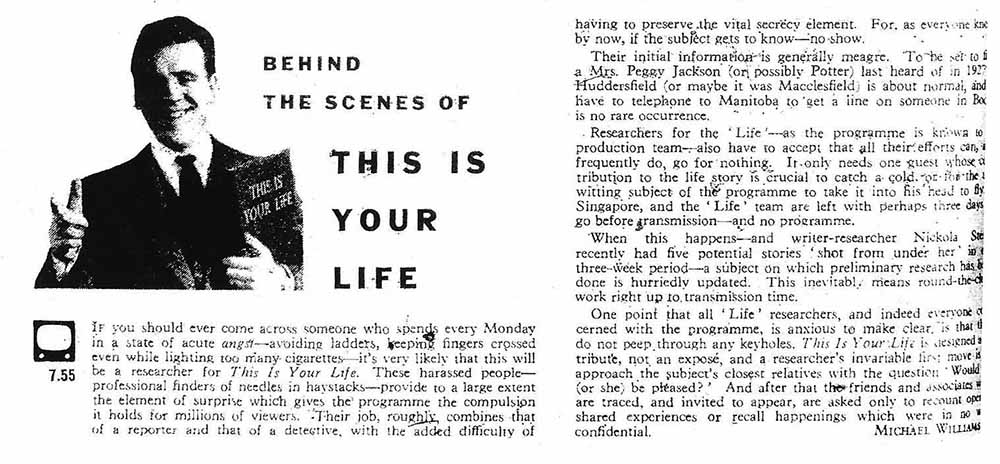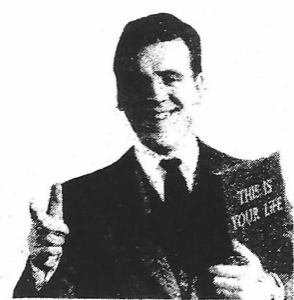Big Red Book
Celebrating television's This Is Your Life
by Michael Williams
If you should ever come across someone who spends every Monday in a state of acute angst – avoiding ladders, keeping fingers crossed even while lighting too many cigarettes – it's very likely that this will be a researcher for This Is Your Life. These harassed people – professional finders of needles in haystacks – provide to a large extent the element of surprise which gives the programme the compulsion it holds for millions of viewers. Their job, roughly, combines that of a reporter and that of a detective with the added difficulty of having to preserve the vital secrecy element. For, as everyone knows by now, if the subject gets to know – no show.
Their initial information is generally meagre. To be sent to find a Mrs Peggy Jackson (or possibly Potter) last heard of in 1927 in Huddersfield (or maybe it was Macclesfield) is about normal, and to have to telephone Manitoba to get a line on someone in Bootle is no rare occurrence.
Researchers for the 'Life' – as the programme is known to its production team – also have to accept that all their efforts can, and frequently do, go for nothing. It only needs one guest whose contribution to the life story is crucial to catch a cold or for the unwitting subject of the programme to take it into his head to fly to Singapore, and the 'Life' team are left with perhaps three days to go before transmission – and no programme.
When this happens – and writer-researcher Nickola Sterne recently had five potential stories 'shot from under her' in one three-week period – a subject on which preliminary research has been done is hurriedly updated. This inevitably means round-the-clock work right up to transmission time.
One point that all 'Life' researchers, and indeed everyone concerned with the programme, is anxious to make clear, is that they do not peep through any keyholes. This Is Your Life is designed as a tribute, not an expose, and a researcher's invariable first move is to approach the subject's closest relatives with the question 'Would he (or she) be pleased?' And after that the friends and associates who are traced, and invited to appear, are asked only to recount openly shared experiences or recall happenings which were in no way confidential.

